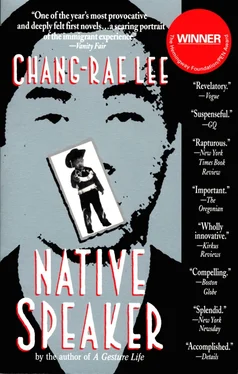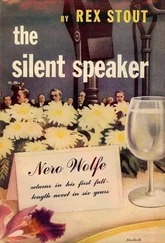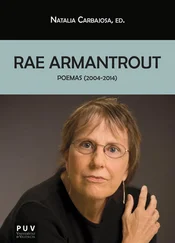The boys’ names are Ouboume and Bouhoaume. Such beautiful names. I think Laotian should be our Esperanto. After some more romping Lelia sits them down with picture books. They keep gazing over at me through the break in the wall, maybe thinking I’m next. Lelia never likes to close the sliding door and so she gives them headphones, and then puts one on herself. She waves me over anyway so they won’t stare off and I get up and join them. They listen to a tape of consonant sounds, and then practice what they hear for ten minutes. It sounds like a rookery. Lelia has them drill with their mouths like they’re playing scales on the piano. Finally she clicks off the tape. They remove the headgear.
“Press your lips together,” she now tells them, squeezing her own between her fingers. “We’re going to do the sound for P again. This time so we can hear ourselves. Remember P. For P, blow through your lips, like a puff of smoke.”
They repeat after her, as do I: Papa, pickle, paint, peep, pool .
“Great. Let’s do F now.” She uses a rubberized half-section model of the mouth. She pushes the white upper teeth against the inside flesh of the lower lip.
“Do it this way,” she says, helping Ouboume. I show Bouhoaume. She tells us: “Now push air through and say after me.”
Father, finger, food, fun, fang .
We sing the words in unison and then take our turns. Bouhoaume has trouble. He uses his fingers to make himself work like the model, and he tries so hard a slick of drool icicles from his mouth. Ouboume shrieks with delight. Lelia regards him crossly, and he gently pats Bouhoaume on the back. We all try again. We move on to V, which is similar to F, except that you hum a vibrato, which the boys enjoy.
They eat their sandwiches without talking. Egg salad with diced celery. The Asian and Hispanic kids rarely complain about what we give them; the black kids and white kids often do, they act entitled, though in different ways. I don’t know what this means, maybe something about the force of fathers, or the Catholic God.
As I look at the boys I keep thinking of Romulus and Remus, wayward children, what they might say now about their magnificent city of Rome and its citizenry. At their height, the Romans lived among all their conquered, the outer peoples brought to the city as ambassadors, lovers, soldiers, slaves. And these carried with them their native spice and fabric, rites, contagion. Then language. Ancient Rome was the first true Babel. New York City must be the second. No doubt the last will be Los Angeles. Still, to enter this resplendent place, the new ones must learn the primary Latin. Quell the old tongue, loosen the lips. Listen, the hawk and cry of the American city.
The boys are first cousins by way of their fathers, who run a dry-goods business from the back of a beat-up Ford van. When they return to pick up their children, they enter and remove their mesh baseball caps. They are bearing gifts for us. Lelia gets a miniature wooden rack for earrings and rings; a striped silk tie for me. Lelia gets the boys ready to leave. I ask if this is their business and they somehow understand and gesture for me to come down and take a look. Ouboume’s father unlocks the back doors and shows me their rolling stock. They sell off-brand cassette tapes and ladies’ scarves and 99¢ hardcover books and a dozen other items. They keep trying to give me whatever I look at, and finally I accept a celebrity cookbook. The boys are jostling for a seat inside. When I take out my wallet the two men start hollering excitedly in some dialect and push my money away.
As he shuts the van doors Ouboume’s father takes a long look at me.
“Japan? Japan?” he asks.
I shake my head.
“Korea? Korea?”
I nod. He smiles wide and gives me two thumbs-up.
“I like Korea,” he says, I think meaning Koreans. “Tough tough. Hard work.” He points upstairs. “You wife?”
“Yes,” I answer.
“No Korea!”
“No Korea!” I say.
“Ha!”
My answer seems to confirm something for him. Bouhoaume’s father calls him from the front seat.
“You like Kwan? ” he says, moving around to the front.
“What?”
“ Kwan, Kwan .”
“Kwan,” I say.
He stands erect, as if stepping into a stature. “Big man, Kwan . Big man, big man!”
“Yes,” I tell him. “Big man. I like Kwan .”
He hops in shotgun and flips thumbs-up again. The boys do the same from the back. They lean against a gross of cigarette cartons. Winstons, Marlboros. Gray-market goods. They’ll drive around the city — there won’t be any more schooling today — and search the ordered blocks for a good spot in the stream of people, and then set up for a few hours, or until an inspector asks to see their license to sell. One of the fathers will stall in broken English while the others hastily pack the merchandise into the van. No trouble, no trouble , he’ll say, shouting it, bowing, shaking his hands, seeming to beg, and as the van starts rolling away he’ll slip in the passenger door and all four of them will call it, breathing it out like a necessary song: No trouble . The boys know it, too, they’ve learned this well, and they’ll all wave goodbye with it, stridently, strong-armed, father-son, with the bombast of Americans, not yet knowing that this is the last language they will share.
* * *
Upstairs Lelia is cleaning the mess the boys leave in her studio. No speech until Monday. I restack picture books and place the toys back in wooden bins while she sweeps for cookie crumbs, egg splots, cracklings of hard candy.
“Little-boy droppings,” she says, examining whatever is stuck to her broom.
As she kneels with the dustpan, I can already see the coil in her back that says she is her mother’s daughter. The waiting rheumatism. The soft bones. I have to remind her to drink more milk. I can see now, too, how she used to pick up after Mitt, the way the day’s weariness would fold upon her body, how she’d almost collapse on her legs to pull off his socks or wipe his chin. Then he’d jump up again, bare-assed and wild, and shout, “Come on, Mom!” and off they’d go across the apartment, chugging like locomotives, never any stops.
Mitt always spoke beautifully, if I remember anything. Lelia read to him every night since he was a year old. She wanted me to read him stories, too, but I never felt comfortable reading aloud, even when I was in high school and college, and I didn’t want to fumble or clutter any words for the boy just as he was coming to the language. I feared I might handicap him, stunt the speech blooming in his brain, and that Lelia would provide the best example of how to speak. My silliness. I should have watched and listened. When Mitt played with my father their communication was somehow wholly untroubled, perfect in its way, and if there were questions between them the boy would simply repeat what the old man said, try to echo his pidgin, his story, learn that talk, too. I suppose they could build a bridge because they needed one. I was too close to the old man, we were always within striking distance of each other. We were intently inarticulate, competitively so. But I thought that Mitt was beginning to appreciate the differences in the three of us; he could mimic the finest gradations in our English and Korean, those notes of who we were, and perhaps he could imagine, if ever briefly, that this was our truest world, rich with disparate melodies.
“Come on, Henry,” Lelia says, tossing the sponge into the bucket. “We’ve cleaned enough. Let’s go outside. Let’s go to the park. It’s too pretty a day to waste.”
“Okay, but downtown. I’d rather ride the ferry.”
“Fine. Anything. To Staten Island, then.” She was already changing, loose slacks and a blouse. Muted greens on muted greens. “Let’s just move.”
Читать дальше












